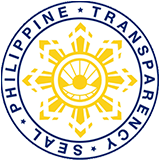Considered as a successful venture in capacity building, the Department of Social Welfare and Development – National Capital Region (DSWD-NCR) through the Capacity Building Unit (CBU) has established a pool of facilitators to augment IDCB activities anchored on the DSWD Reform Agenda core theme. It is expected to improve the delivery of services through innovative systems and capacities. This is being done to continuously improve existing systems and capacities to maintain the Department’s role as the leader in the implementation of the social protection program.
To achieve this, at least a minimum of 24 training hours is provided for each staff per year on all levels to ensure equal opportunity for professional and personal development, in support to the Career Development and Management System of the Department. For their part, the CBU-NCR is the clearing house for all IDCB activities and handles the overall training management for the Field Office and provides technical assistance in the implementation of IDCB activities.
One of the challenges seen prior to the creation of the pool of facilitators is the disparity in the number of CBU staff with the entire workforce of the Field Office that needs to be capacitated for them to perform their functions to the best of their abilities. Another factor is the growing demand on effective management of the training phases, especially the big ticket projects, such as the Pantawid Pamilyang Pilipino Program and the Listahanan, implementation of which started in September 2010, where some activities involve capability building activities for Parent Leaders, LGU Links and newly hired project staff, in addition to the emerging training needs of the organic staff.
As a response to this, the DSWD-NCR through the CBU identified focal persons from centers and residential care facilities and divisions in the Field Office who will serve as the focal person of the CBU in managing the capability building activities of their respective offices. Other key staff, such as the heads of centers and units, division chiefs, social welfare specialists and the centers/residential care facility (C/RCF) coordinator also provided technical inputs and recommendation on their respective areas of specialization.
Through this initiative, capability building activities were managed and implemented following the prescribed timelines. Within three (3) years, there has been an increase in the number of trained staff and those staff capacitated through external training invitations.
Furthermore, the IDCB focal persons and their alternates contributed to the monitoring and implementation of trainings such as: timely submission of reportorial requirements, increased partnership through the pool of experts from the Social Welfare and Development Learning Network (SWD L-Net) which provides quality and effective resource persons that meets the training demands, C/RCFs prioritized the inclusion of initiated trainings in their respective Work and Financial Plan based on training needs assessment (TNA) results, preparation of training documents namely: modules, syllabi and training design are facilitated promptly.
Focal persons were also mobilized and they facilitated the conduct of regional activities such as stakeholder’s fora, convergence caravans and sectoral program celebrations. In 2012, implementing guidelines stating the functions of IDCB focal persons as part of the institutionalization efforts, resulting to better performance of their roles which affects the identification of training needs of the staff from their respective offices, following the thrusts and directions of the Department.
One distinct characteristic of this effort is the succession from one focal person to another, as the preservation of knowledge is ensured. An IDCB focal person has a two-year term, after which his/her alternate shall assume the position and another alternate shall be identified. Both the IDCB focal person and alternate are assessed based on the evaluation of their performance on the two-year term. Focal persons are required to provide sufficient coaching opportunities to their alternates to ensure the transfer of knowledge will also serve as skills enhancement for the staff. ###



